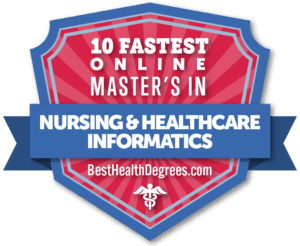
Key Takeaways:
- Two of the fastest online master’s programs are at the University of Washington and Johns Hopkins University.
- Demand is high for professionals in health informatics due to the shift from paper to electronic records.
- Accelerated online programs offer a fast track to master’s degrees in health informatics and often accept work experience for credit.
- These programs are designed for working adults, focusing on speed and incorporating relevant work experience into the curriculum.
In the past, patients’ records were once put away in paper documents. Today, with new laws and regulations making electronic data storage compulsory, there is a high demand for health informaticists who are trained in the field of obtaining, maintaining, and securing of digital records. Working nurses and healthcare managers – as well as adults who want a career change into something lucrative and in-demand – can look to accelerated online master’s programs to get them the credentials they need quickly.
More and more colleges are designing options for students to receive their informatics masters degree sooner. One route students have is to enroll in an accelerated master’s in health informatics degree program. An accelerated schedule consists of fewer courses in an abbreviated timeframe. Many colleges are now offering credit for work experience too. If the institution recognizes a student’s proficiency in an area due to outside experience, degree credits may be granted. Besides work experience, colleges also award credits for time spent abroad or military tours of duty.
Our Method: Ranking the Fastest Online Master’s in Nursing and Healthcare Informatics
Best Health Degrees editors know that working adults have their own special set of needs, but one of the most important is time. That’s why the Fastest Online Master’s in Nursing and Healthcare Informatics ranking focuses on speed. But speed isn’t everything, so editors ranked programs based on five factors: Cost, Graduation Rate, Job Placement, Salary Potential, and Student Satisfaction, based on data from IPEDS, Niche, and College Scorecard.
1. University of Washington

At the top of the list of the 10 best online health informatics masters programs is the University of Washington’s MS in Clinical Informatics & Patient-Centered Technologies, offered by the Professional & Continuing Education Department. This degree is offered in a flexible online format and can be completed part-time in 2-6 years or in as little as 15 months full-time. The program is intended to teach healthcare professionals how to understand, evaluate, implement, and manage data information systems.
The Department of Professional & Continuing Education at the University of Washington makes education accessible for everyone. The school breaks down barriers to help students confront and overcome their educational challenges. The University of Washington’s online program are designed to fit into your life so you can continue to work, pursue your degree, and still find time to eat and sleep.
Favorite Fact: The instructors at the University of Washington’s Department of Professional & Continuing Education are working professionals by day and college professors at night, so they know exactly what you’ll be facing at work in the real world.
Degree: Master of Science Degree in Clinical Informatics & Patient-Centered Technologies – 15 months
Learn more at Washington’s program site!
2. Johns Hopkins University

The Master of Science in Applied Health Sciences Informatics available through the Johns Hopkins School of Medicine Division of Health Sciences Informatics is next on the list of the 10 best online health informatics masters programs. This program is ideal for students who want to master the application of information technology to data in a healthcare setting. Graduates of the program will be prepared for leadership positions in the healthcare informatics field.
The Division of Health Sciences Informatics focuses on providing the highest quality education and research in order to contribute as much as possible to the knowledge body in the areas of public health and healthcare informatics. Johns Hopkins’s experience in clinical care, research, and public health are known and respected all over the world.
Favorite Fact: This is an online program that can be completed in 15-36 months.
Degree: MS Applied Health Sciences Informatics – 15 months
Learn more at Johns Hopkins’ program site!
3. Medical University of South Carolina
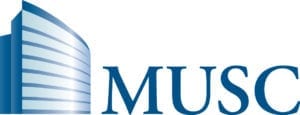
The Master of Science in Health Informatics from the Medical University of South Carolina prepares students to be able to implement and use healthcare information technology such as data management systems and electronic health records. Graduates will have the ability to quickly analyze and act on patient data. The program is designed for working professionals and can be completed online in as little as 15 months.
The College of Health Professions at the Medical University of South Carolina is a leader in intellectual discovery, education, and research. The school is a proponent of diversity and is constantly making changes to improve the programs and services it offers to its students and to the community. The College of Health Professions takes advantage of the latest technological advances to give its students the most up-to-date information and experiences.
Favorite Fact: Students attend 2-3 online courses and one on-campus session each semester.
Degree: MS in Health Informatics – 15 months
Learn more at MUSC’s program site!
4. UMass Lowell
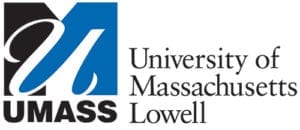
The MS in Health Informatics & Management at UMass Lowell can be completed online in one year. This degree offers access to a profitable, in-demand field where graduates can earn more than $90,000 per year. The UMass Lowell informatics program teaches students how to capture patient data and use it to provide better healthcare for their patients.
The Zuckerberg College of Health Sciences at UMass Lowell has a reputation for excellence in research, teaching, and community service. The school provides students with unique community service opportunities that allow them to gain experience while making the world a better place. In addition to learning informatics, students will learn leadership skills and will learn to work effectively as part of a team.
Favorite Fact: Students can choose a concentration in either Health Management or Health Informatics.
Degree: MS in Health Informatics – 1 year
Learn more at UMass Lowell’s program site!
5. Regis University

The MS in Health Informatics from Regis University’s College of Computer & Information Sciences allows students to combine their healthcare experience with knowledge of electronic health records, diagnostic technologies, provider order entry systems and other healthcare IT systems. Graduates will be able to understand how to manage information in order to help their employers lower costs, reduce the number of medical errors, and provide better quality patient care.
The College of Computer and Information Sciences at Regis University produces graduates who possess the technical computer skills they need to succeed. Graduates are skilled at critical thinking and analytical problem-solving and are prepared to take on leadership roles in the area of health informatics. They are prepared to embrace the changes they will encounter as technology continues to improve throughout their professional careers, and they understand the impact that their work has on real people and real lives.
Favorite Fact: This is an accelerated program that can be completed online within 24 months.
Degree: MS in Health Informatics Online Accelerated
Learn more at Regis’ program site!
6. Boston University (Metro College)

The MS in Computer Information Systems from Boston University Metropolitan College is available with a concentration in health informatics. This program provides a solid understanding of computer networks, data communication, and biomedical databases, including security and privacy concerns in each area. Students are exposed to the latest medical technologies as well as the record systems most commonly used by hospitals and other healthcare organizations. In addition, students have the opportunity to learn project management techniques and tools.
Metropolitan College offers an engaging community, the freedom of a flexible schedules, and rigorous interactive learning. The school’s innovative spirit captures the imagination, resulting in an exhilarating exchange of ideas. Students connect with other from all over the world and gain new perspectives that help them find new solutions to the challenges they face. The college offers many options to make education accessible to everyone, including evening classes and flexible online and blended programs.
Favorite Fact: This program can be completed either online or on campus in as little as 18 months.
Degree: MS in Computer Information Systems – Health Informatics – 18 months
Learn more at BU’s program site!
7. Stony Brook University
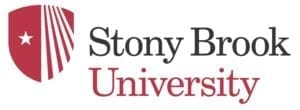
The MS in Applied Health Informatics offered by the Stony Brook University School of Health Technology and Management was developed with input from hiring managers, regional CIOs, and national experts. The program is designed to provide students with the skills and competencies they need to succeed in the workforce. There is a 480-hour practicum that is completed at a local vendor, healthcare center, or other community healthcare organization.
At the School of Health Technology and Management at Stony Brook University, “health” and “care” have equal importance. Health is the goal; care is the standard that guides the delivery of health services. The school’s programs are interdisciplinary, providing students with opportunities to learn how to apply their skills across various fields.
Favorite Fact: This is an on-campus program that lasts 15 months. Students complete one regular year (fall and spring semesters) plus four summer sessions.
Degree: MS in Applied Health Informatics – 15 month
Learn more at Stony Brook’s program site!
8. Roberts Wesleyan College
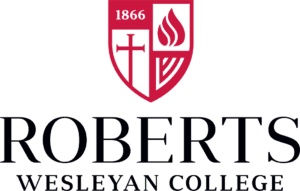
The MS in Healthcare Informatics Administration from Roberts Wesleyan College School of Business combines the typical health informatics degree with the leadership and business skills of a health administration degree. This program seeks to eliminate any gap in communication between administrative, clinical, and IT health professionals. Students are not required to have a technical background before starting the program. Some of the subjects covered include electronic medical records, healthcare reform, electronic transmission of medical records, and privacy laws.
Roberts Wesleyan College is a Christian College that is dedicated to spiritual growth and service. Students can wrestle with difficult questions in a safe environment. Roberts Wesleyan is a small school with a student faculty ratio of just 11 students per faculty member. Whether you’re attending for 16 months, two years, or four years, Roberts Wesleyan wants you to feel like part of the family.
Favorite Fact: This program is 100% online and takes about 18 months to complete.
Degree: MS in Healthcare Informatics Administration – 18 months
Learn more at RWC’s program site!
9. Franklin University

The MS in Health Informatics from Franklin University teaches students how to use their talents and skills in data analysis to influence decision-making, create more efficient workflows, and improve patient outcomes. The demand for skilled health informatics technicians is high, and a master’s degree in health informatics will help you develop the math and computer science skills you’ll need to succeed in this highly sought-after and well-paid career field.
More than 100 years ago, Franklin University got its start as a place where adult students can finish their degrees quickly. As the times have changed, so has the technology, but the core focus of the school—to provide a quality education to adult learners—has remained the same. Franklin is committed to making education available to anyone who has the desire to learn.
Favorite Fact: At Franklin, you can earn your MS in Health Informatics online in just 12 months.
Degree: MS in Health Informatics – 12 months
Learn more at Franklin’s program site!
10. Western Governors University

The MS in Nursing—Nursing Informatics degree from Western Governors University is a BSN-to-MSN program that combines data management, nursing science, and analytical and communication skills to provide the skills needed to be successful as a nurse informatics specialist. The nursing informatics program teaches students how to gather, analyze, and use healthcare information to improve workflow and outcomes and reduce expenses.
Western Governors University’s programs are self-paced. Students are expected to complete at least twelve competency units (equal to about four courses per semester) per semester but are encouraged to work faster if they can. Tuition is priced by the semester, not by the credit, so students who work more quickly can complete their degrees faster and pay less. 97% of WGU graduates would recommend the school to their friends.
Favorite Fact: 93% of WGU’s nursing informatics graduates complete the program within 15 months.
Degree: MSN Nursing Informatics – 15 months
Learn more at WGU’s program site!
How Do Colleges Speed Up an Informatics Master’s Degree?
The accelerated master’s in health informatics degree track may hold classes year-round to speed up the process. An accelerated nursing informatics program is likely to follow an online-only format. With this type of class format, students will speed up their degree completion timeframe because they can finish coursework at times that work best for them.
Competency-based degree programs are another growing trend among colleges. With this type of format, students are able to take examinations to demonstrate their proficiencies in certain subjects. The benefits of these programs include faster degree conferment and less student debt.
Before applying to an accelerated nursing informatics program, a student should speak to an admissions counselor. The counselor can advise the applicant on any transfer credits that could be applied toward degree requirements.
What Kinds of Jobs are in Nursing Informatics?
Nursing informatics jobs are available in both the private and public sector. Nursing informatics focuses on using data to improve patient care. Nurses look at common data trends to find ways to best use technology within a medical setting. For nursing informatics jobs entry level, the position is still unlikely to be the nurse’s first job. Most nursing informatics jobs require that the applicant have past experience as a RN. Alternatively, the nursing informatics jobs entry level may permit nurses who have earned their RN credentials simultaneously with their informatics degrees. Nurses in the field will usually have job titles such as nursing informatics specialist, clinical analyst, or clinical informatics coordinator. Senior-level nursing informatics jobs include system administrator, nursing informatics educator, and nursing informatics consultant.
Entry-level positions in nursing informatics are heavily focused on electronic records. Federal regulations mandate how patient records are managed. All providers are required to maintain electronic records in order to receive Medicare payments. The specialist will need to implement these record systems and ensure they help the medical provider stay in compliance.
Additional duties in the field may include analyzing current software and systems within a facility for efficiency. Nurses must confirm that any technology offered to nurses help make their jobs easier. Nurse programmers will actually design software solutions to meet the needs of clinicians.
What Kinds of Jobs are in Health Informatics?
Healthcare informatics jobs are similar to nursing informatics positions. The key difference is health informatics focuses on assisting medical facilities. A healthcare informatics job description will usually ask for the applicant to be experienced in helping facilities abide by federal mandates. Entry-level jobs in healthcare informatics may feature the nurse working as a project specialist. For this position, the nurse will consult and manage projects featuring technological advancements for the organization.
As the specialist gains experience, he or she may advance and be in charge of more complex informatics projects. Advanced healthcare informatics jobs include chief medical information officer and health informatics director. These positions require an advanced knowledge of healthcare systems. The executive will be expected to oversee all healthcare systems within a single organization. He or she may also be responsible for training all staff on newly implemented systems. Another job responsibility could be collecting data to find ways to improve the facility’s IT infrastructure. A healthcare informatics job description may even ask for the applicant to know how to design custom software solutions for organizations.
Can I Get a Job in Nursing Informatics with Just a Certification?
Instead of master-level degrees, some nurses look at nursing informatics certification programs to advance their careers. Although certifications are helpful for job applicants, the specialist may want to consider attending a master’s degree program first. In fact, nursing informatics certification programs often require the nurse to have post-bachelor degree credits in the field. As an example, the ANCC’s Nursing Informatics Certification mandates a minimum of 30 continuing education credits in the field of nursing informatics. Furthermore, the applicant must have a minimum of 2 years experience as a registered nurse and a minimum of 1,000 hours of nursing informatics practice.
To get certified, the applicant must pass the nursing informatics proficiency examination. Certifications are usually valid for five years with continuing credits required for renewal. For nurses who decide to attend nursing informatics certification programs in lieu of graduate schools, they should review each program option. To get preference when applying for jobs, the certification should be well respected in the field with rigorous requirements.
Related Rankings: